Muscle weakness is a symptom, which is also known as Myasthenia or Myasthenia referred to as. As the name suggests, the muscles are weak or the muscles are abnormally reduced in their performance.
What is muscle weakness?

If the muscles are weak, the performance of the muscles is severely weakened, i.e. the muscles can no longer perform normal or healthy strength and movement.
Humans have over 600 muscles that allow both the musculoskeletal system and the internal organs to function. If this function of the muscles is weakened, it is referred to as muscle weakness. The reasons and causes for muscle weakness can be varied. Serious illnesses do not always have to be behind it.
Muscle weakness can appear differently. It can show symptoms in the form of a slight weakness to severe paralysis.
causes
There are many reasons for muscle weakness. Muscle weakness usually occurs as a general lack of strength after a lot of physical exertion (sore muscles) or work. The wrong and unhealthy diet, which can lead to physical deficiency symptoms, are also the cause of muscle weakness. These are almost always of a harmless nature and through recovery and regeneration of the body the strength in the muscles is soon back.
Muscle weakness, however, can also be a symptom of a nerve disease or other disease that is often accompanied by paralysis. An example of this would be the dreaded multiple sclerosis in which, in addition to muscle weakness, increased paralysis occurs.
Muscle weakness can also occur in the event of an accident (shock), an infection or a stroke. Muscle weakness can also often occur with muscle wasting (muscle atrophy). Further disease causes are listed below.
You can find your medication here
➔ Medicines for muscle weaknessDiseases with this symptom
- disc prolapse
- Muscle inflammation
- Nerve inflammation
- Lambert-Eaton-Rooke Syndrome
- Parkinson's
- muscular dystrophy
- Hypotonia
- Amyotrophic Lateral Sclerosis
- Circulatory disorders
- Arterial Disease
- Myasthenia gravis pseudoparalytica
- Spinal muscular atrophy
Complications
Muscle weakness is experienced by those affected as physically and mentally stressful. The possibilities of movement are restricted. Physical or sporting activities can no longer be carried out as usual. In some cases there is a risk of occupational disability.
Holding objects or carrying bags can briefly collapse the muscles. The muscle weakness causes general dissatisfaction. Fluctuations in mood or an unstable state of mind are possible consequences. Interpersonal tensions and conflicts arise. Some patients experience aggressive or choleric behavior.
The treatment of muscle weakness can, depending on the cause, last for a long time and only achieve success in small steps. The help of those affected is often necessary. If there is a congenital malformation, treatment measures can often help to alleviate the symptoms. However, the present genetic defect prevents healing from occurring.
The reduced force tension can lead to problems of self-confidence in the person concerned. Other complications include eating disorders, diabetes, or alcoholism. In some cases, diseases such as a brain tumor, depression or an insufficient supply of the thyroid gland due to muscle weakness are not recognized or only recognized very late. It often takes years to find the true cause. If you have a tumor or encephalitis, it's important to get it diagnosed early.
When should you go to the doctor?
Muscle weakness is a completely normal symptom after unusual exertion, so a visit to the doctor is by no means necessary. If stabbing pain occurs after such an activity, then there is a very high probability that sore muscles are responsible. However, sore muscles can also cause complications that make a visit to the doctor absolutely necessary.
Serious muscle injuries can result if strong pressure continues to be exerted on the affected regions despite sore muscles. Torn tendons or muscles are not uncommon. A visit to the doctor is then inevitable and recovery can only be achieved with appropriate medication or even an operation. If you often suffer from muscle pain in the face, you should definitely consult a doctor. A serious illness can be hidden behind it, which requires medical treatment.
In older people aged 65 to 70 years, muscle weakness is a completely normal phenomenon. The muscles lose their elasticity and strength in old age, which can lead to permanent muscle weakness. Affected people can counteract this appearance with sufficient physical activity. However, those who remain inactive must expect a considerable deterioration.
Doctors & therapists in your area
Treatment & Therapy
Although muscle weakness does not always mean a serious illness, a doctor should still be consulted to clarify any eventuality. As with any medical examination, the doctor will ask in-depth questions about the symptoms of muscle weakness. These include: since when the muscle weakness has existed, which muscles are affected, is there a causal connection with certain events (e.g. accident), there are other complaints such as sensory disturbance or paralysis. Possible previous illnesses (diabetes mellitus, multiple sclerosis) are also included in the examination. Medicines taken can also be important in finding the cause.
This is followed by further physical examinations, which primarily diagnose the muscles, reflexes, locomotor system and nerves more precisely. Individualized muscle tests give the doctor the opportunity to measure and evaluate differences in strength.
If necessary, further investigation methods are then necessary to confirm or refer to suspicious factors. These include, among other things, specialist examinations such as an ophthalmologist or ear, nose and throat doctor, computed tomography (CT), magnetic resonance imaging (MRT), muscle removal (muscle biopsy) and electromyography (EMG).
Any further treatment or therapy then depends on the cause found. If the muscle weakness is due to inadequate nutrition, treatment should be nutritional therapy. Magnesium deficiency, iron deficiency and vitamin deficiency can then be compensated for. If general infections are the cause, the muscle weakness disappears quickly on its own after recovery. Treatment is then not necessary.
However, if the underlying muscle weakness is serious, special therapy methods are necessary. In particular, the dreaded multiple sclerosis cannot yet be cured, but it can be sustainably reduced with modern treatment methods. This includes general physiotherapy measures with physiotherapy as well as exercise baths, contrast baths, massages, heat applications and electrical treatments. Other nerve diseases that can lead to muscle weakness (polyneuropathies, myasthenia gravis pseudoparalytica, amyotrophic lateral sclerosis, muscular dystrophy of the Duchenne type) must be treated by a specialist. Your doctor will of course explain this to you.
Outlook & forecast
If the muscles are weak, some movements can only be carried out without power. The chances of recovery depend on the underlying disease. The most harmless form is caused by a lack of exercise or poor diet and can be improved or eliminated entirely by changing your lifestyle.
A lack of vitamins is also reflected in general tiredness and weakened muscle strength. Multivitamin supplements can bring relief.Too weak muscle tension with simultaneous muscle weakness can already show in childhood. Skeletal muscles are particularly affected, but also those that are responsible for active, controlled movement.
If there is an underlying neuromuscular disease such as multiple sclerosis (MS), the patient must be treated by a doctor. The earlier the mobility is promoted, the better the prognosis. Physiotherapy is then mainly about conscious fine motor movements, measured effort and posture control. MS is not curable, but with a healthy diet, physiotherapy and an adapted lifestyle, the patient can live to a relatively old age. Since protein is essential for muscle activity, many doctors recommend a protein-rich diet, lots of fruit and vegetables.
If the rare nerve disease myasthenia gravis is present, there is no cure, but symptoms improve. In this disease, the signal transmission between the nervous system and the muscles is disturbed. The weakness is especially evident in the face, with drooping eyelids.
You can find your medication here
➔ Medicines for muscle weaknessprevention
A muscle weakness that is caused by a nerve disease cannot be directly prevented today.
Muscle weakness due to a lack of minerals and vitamins can be prevented by eating a healthy and varied diet. In addition, a healthy amount of sport and exercise is advisable for general strengthening of the muscles and the musculoskeletal system.
You can do that yourself
There are various methods of self-help for muscle weakness. First and foremost, the affected muscles should not be unnecessarily and excessively stressed. Certain heavy physical activities or sports should be avoided if possible as they promote muscle weakness.
Therapy with heat and cold also often help. The affected areas can be cooled with the help of ice or other coolants. A heat treatment, such as going to a sauna or using a hot water bottle, can often help to relieve the muscles. Cold baths can also be taken in the swimming pool. As a rule, cold showers are very healthy and also promote the circulation. Other therapies that reduce the symptoms are occupational therapy and physiotherapy.
In order to avoid over-exerting the muscles in certain activities, the household should be made as simple and safe as possible. This is especially important in the elderly. Electric toothbrushes or household robots can help here, for example. The muscles can also be relaxed with various ointments. Relaxation therapies or yoga can be helpful here. Stress and tension are to be avoided. Valerian usually helps against an inner turmoil with muscle weakness.

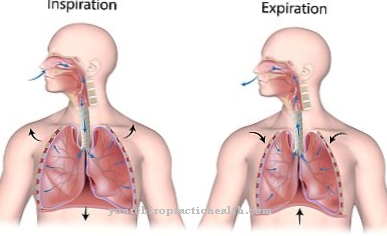



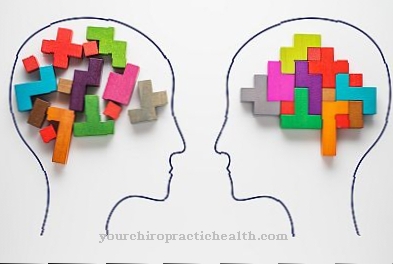
.jpg)

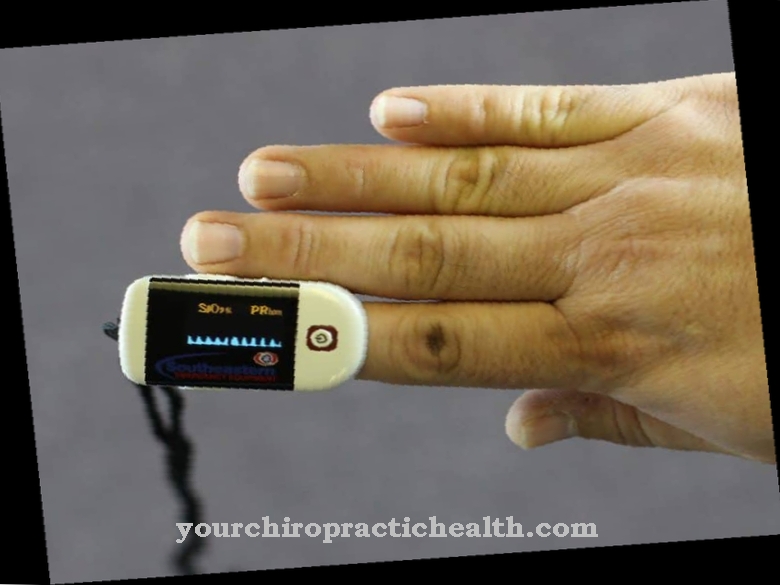
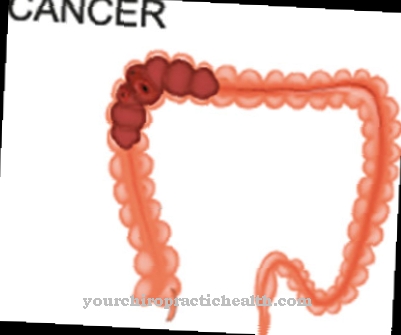
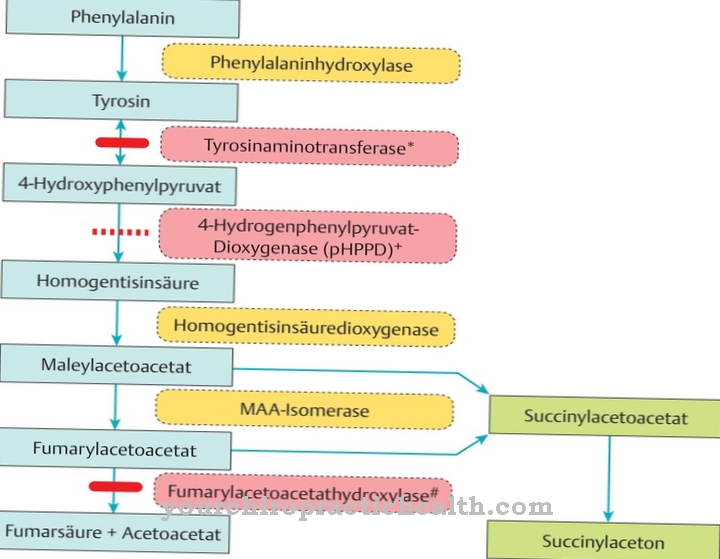

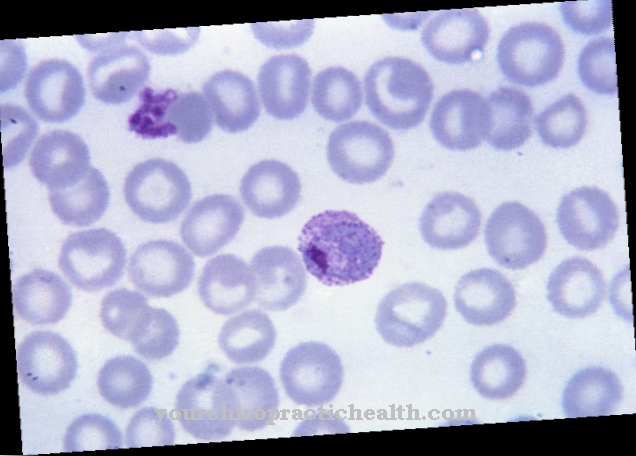


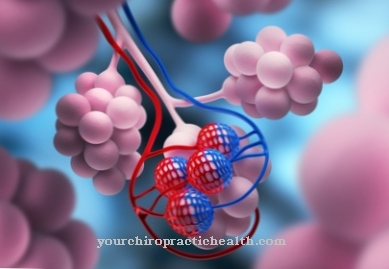

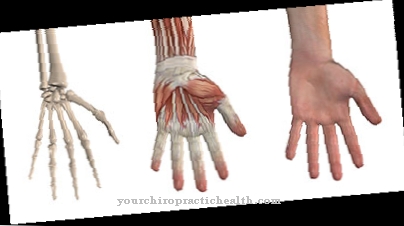



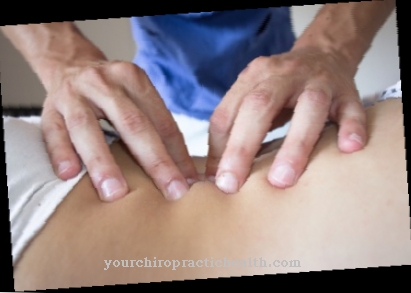


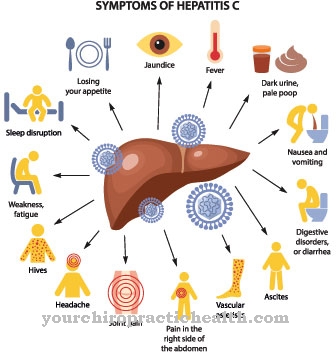
.jpg)


